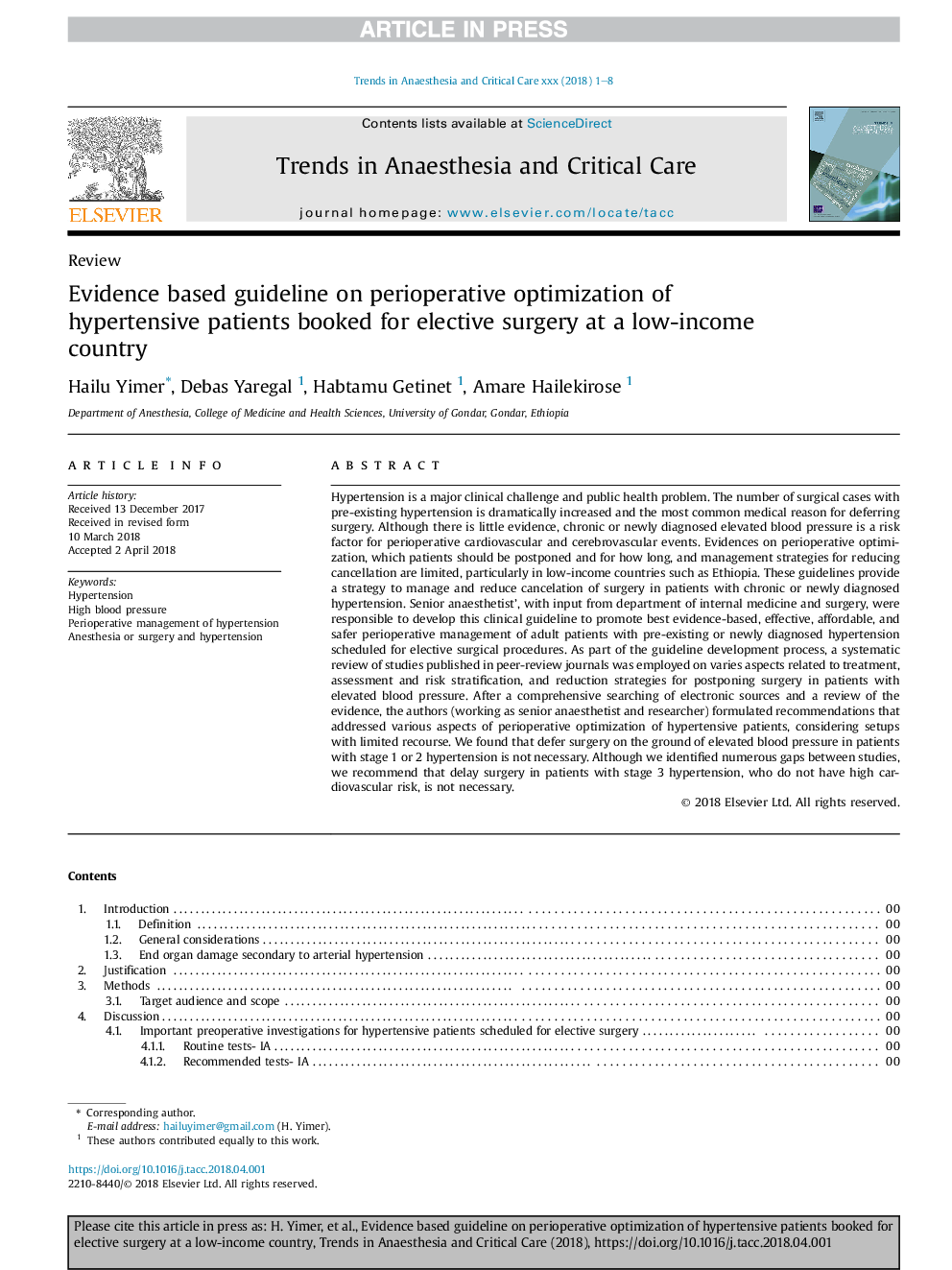| Article ID | Journal | Published Year | Pages | File Type |
|---|---|---|---|---|
| 8623868 | Trends in Anaesthesia and Critical Care | 2018 | 8 Pages |
Abstract
Hypertension is a major clinical challenge and public health problem. The number of surgical cases with pre-existing hypertension is dramatically increased and the most common medical reason for deferring surgery. Although there is little evidence, chronic or newly diagnosed elevated blood pressure is a risk factor for perioperative cardiovascular and cerebrovascular events. Evidences on perioperative optimization, which patients should be postponed and for how long, and management strategies for reducing cancellation are limited, particularly in low-income countries such as Ethiopia. These guidelines provide a strategy to manage and reduce cancelation of surgery in patients with chronic or newly diagnosed hypertension. Senior anaesthetist', with input from department of internal medicine and surgery, were responsible to develop this clinical guideline to promote best evidence-based, effective, affordable, and safer perioperative management of adult patients with pre-existing or newly diagnosed hypertension scheduled for elective surgical procedures. As part of the guideline development process, a systematic review of studies published in peer-review journals was employed on varies aspects related to treatment, assessment and risk stratification, and reduction strategies for postponing surgery in patients with elevated blood pressure. After a comprehensive searching of electronic sources and a review of the evidence, the authors (working as senior anaesthetist and researcher) formulated recommendations that addressed various aspects of perioperative optimization of hypertensive patients, considering setups with limited recourse. We found that defer surgery on the ground of elevated blood pressure in patients with stage 1 or 2 hypertension is not necessary. Although we identified numerous gaps between studies, we recommend that delay surgery in patients with stage 3 hypertension, who do not have high cardiovascular risk, is not necessary.
Keywords
Related Topics
Health Sciences
Medicine and Dentistry
Anesthesiology and Pain Medicine
Authors
Hailu Yimer, Debas Yaregal, Habtamu Getinet, Amare Hailekirose,
